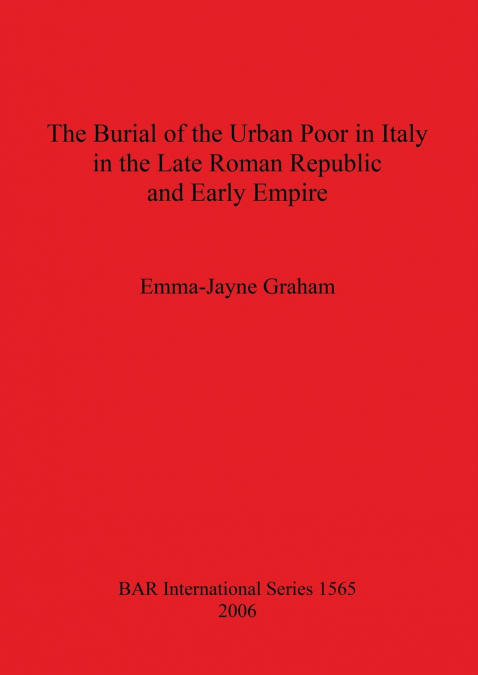
Emma-Jayne Graham
The horror of the puticuli, the mass burial pits, and their traditional association with the poor, has often led to this socio-economic group being viewed as somehow ‘different’ to the rest of the ancient urban community in the Italy of the Late Roman Republic. This is the theory questioned by the author of this volume. Why should this part of the community care so little about the disposal of the dead when other members of society were devoting huge amounts of time and money to ensuring that the deceased received not only burial, but also lasting commemoration? This volume emerged from the author’s growing sense of unease at the way in which the urban poor of Rome seemed to be forgotten about, not only in discussions of burial practice, but also general societal trends. It stemmed from a wish to try to identify and re-humanise these often neglected people, as well as to use this information to more comprehensively assess the disposal practices of the ancient city dweller. The work goes some way to beginning this process. Much of the world of the ancient urban poor remains still to be explored, and, while not claiming to be comprehensive, the author hopes that it will re-insert the poor inhabitants of Rome into the consciousness of scholars of the ancient world, and contribute towards the development of new and exciting dialogues that take account of the attitudes and activities of all the varied members of ancient society.